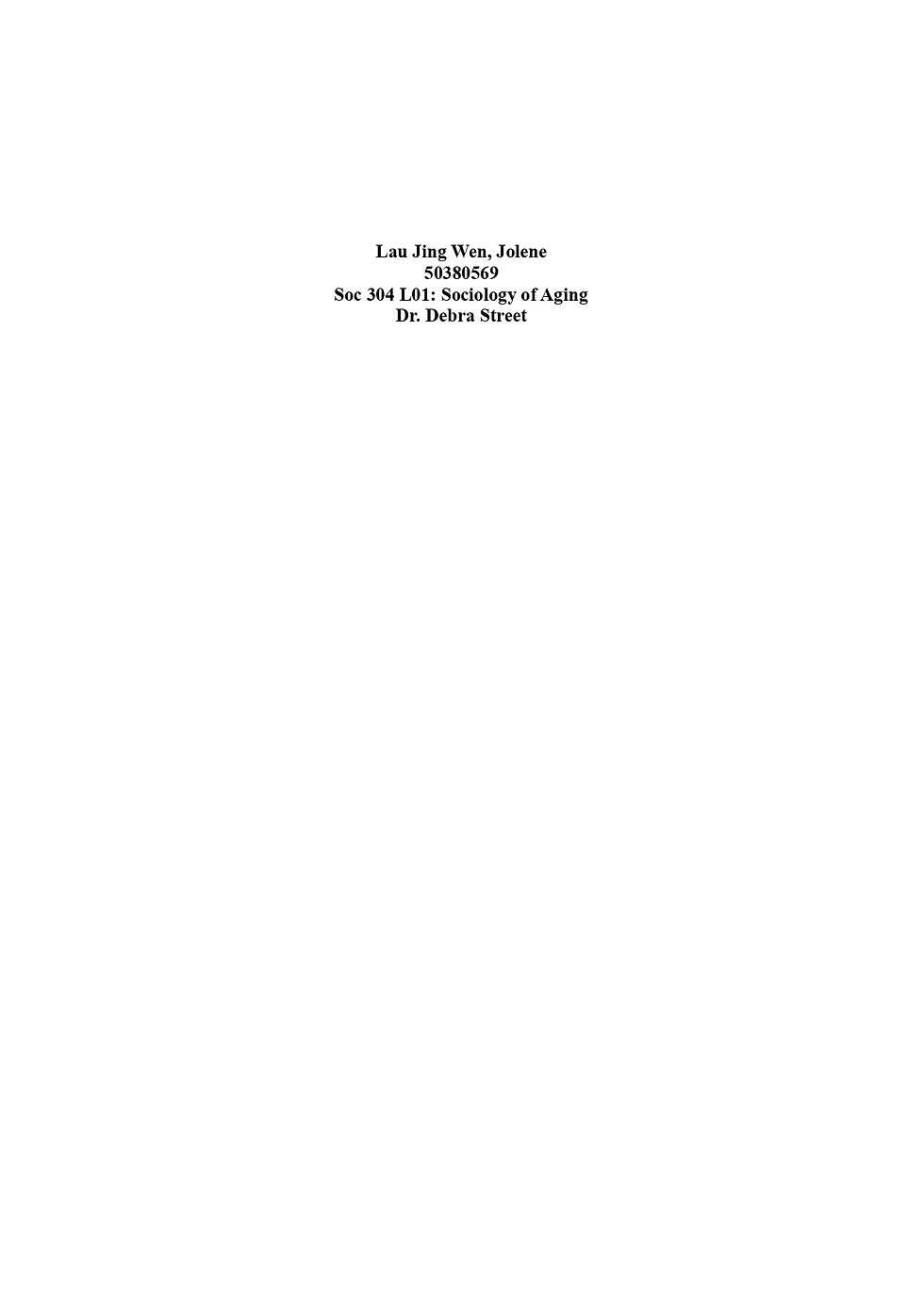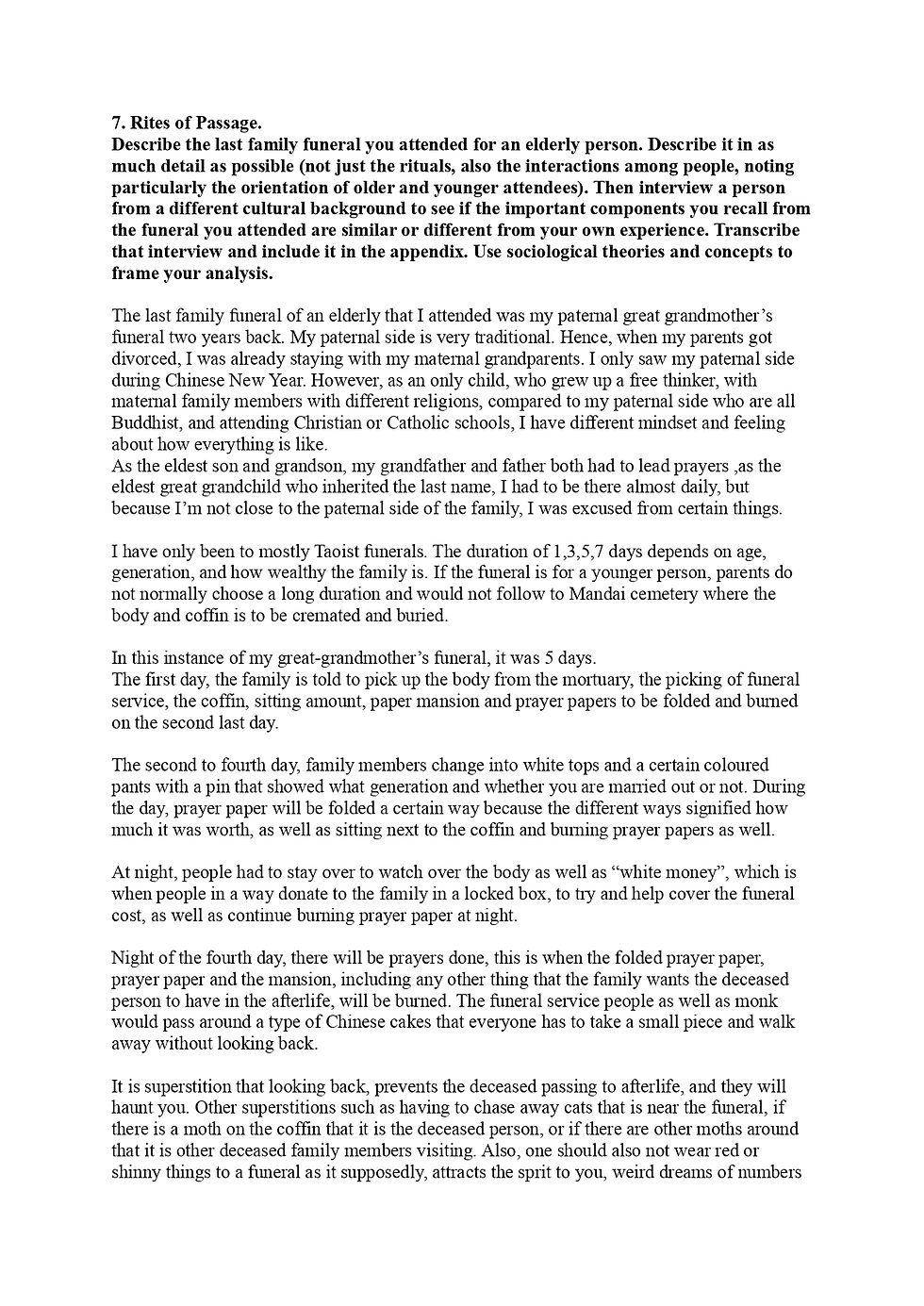Thematic Pathway
- Jolene Lau
- Dec 28, 2023
- 3 min read
May,2023
Thematic Pathway Connections
Topic and Courses
Human Nature was the theme of my Thematic Pathway. It provides a forum for students to consider what it means to be human and our place in the natural world. The pathway consists of courses in the arts, humanities, and sciences that allow students to investigate how humans have pondered fundamental questions about their own existence through art, literature, history, genetics, psychology, and religion. World History to 1500 (HIS 141), Sociology of Diversity (SOC 211), and Sociology of Aging (SOC 304) were the courses I took to fulfill the requirements for this pathway.
Course Connections
HIS141 which examines the evolution of societies in various parts of the world from prehistoric times to around 1500. Because it covers such a broad range of topics and locations, the course must be selective, focusing on some themes and locations more thoroughly than others. Complex societies, cultures, and political arrangements emerged around the world. History 141 gave students a broad overview of world history while also improving their historical analysis skills and broadening their understanding of the modern world. For example, learning about agriculture, how people lived in the past, inventions and their effects on society, culture, and traditions. Religions, for example, are still practiced today, regardless of where they originated. I had to give a solo presentation about the Ostrogoths, including their origin, home region, impacts, language, and migration. Displaying my knowledge of the Ostrogoths and teaching my classmates and peers about them.
SOC 211 examines the meaning and experience of diversity through a sociological lens, with a focus on dimensions of difference such as race, ethnicity, religion, class, (dis)ability, sexuality, and gender. For example, understanding of diversity and difference, stereotypes, theories and concepts pertaining to diversity sociology, and how all of this is explored. I completed a group project presenting on the diversity of older adults in terms of sexuality and employment, the lack of awareness on the LGBTQ+ Community among the elders in Singapore, as well as the stereotype, ageism, that they face at their age, which reflects the current culture and trends that elders face.
SOC 304 which addresses societal aging, is accompanied by a slew of challenges, such as how to provide care, income, and engagement opportunities for an aging population. Students gain an understanding of how different societies adapt to these new challenges by studying societal trends related to aging. Work and retirement, health, care work and family, death and dying, and changing patterns of inequality with age are among the topics covered. For example, learning about the difficulties faced by caregivers, the issues and stereotypes faced by elders, the implications on elders, and theories such as the role theory, activity theory, disengagement theory, continuity theory, and age stratification theory are some of the topics covered in class.
Below is a paper I wrote on rites of passage that compares my own knowledge and experiences with those of another race, culture, and religion. It was interesting to interview my friend for this paper because I had no prior knowledge of how other races, cultures, and religions performed final rites of passage for their deceased loved ones. This research paper provided a great deal of insight into the differences between a taoist funeral and a hindu funeral, as well as the differences in culture and traditions and the reasons for them.
Topic Connection


(Research paper I did on Funeral Rites for SOC304 based on how people from different race and culture has different rites of passage.The link will direct you to the entire work: https://drive.google.com/file/d/12DDe13Ee2Y28WkWBMBT48zdHYhtVfeOh/view?usp=share_link )
A recurring theme in all three modules is how culture and aging population is shaped by different societies. The impacts of historical events and a prominent aging population have been formed throughout human history, passed down from generation to generation. With the three modules, I was able to learn and reflect on what it is like to live in our society in comparison to those of the past as well as how tradition and culture are still very much a part of it. These courses provided me with the opportunity to investigate the arts, humanities, and sciences in terms of how there is a reason for what is happening, has happened, and the possibility of what will happen in relation to the society in which we live. With this knowledge, such as societal issues on ageism, culture and tradition and the effects of the past, I can see how it will be applicable and useful in my future career.

Comments